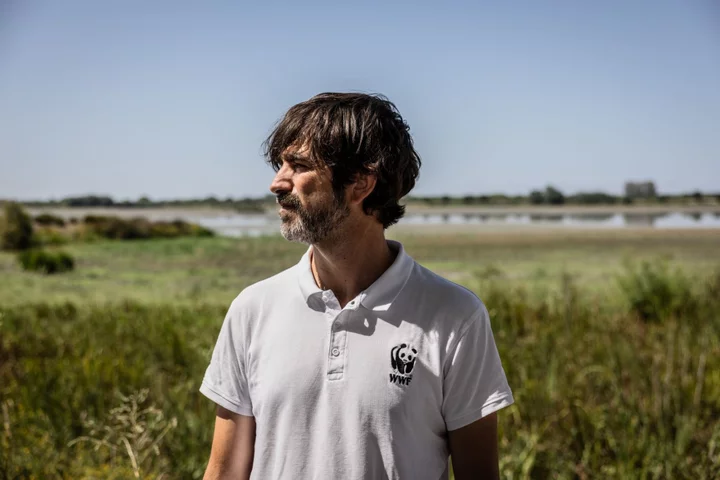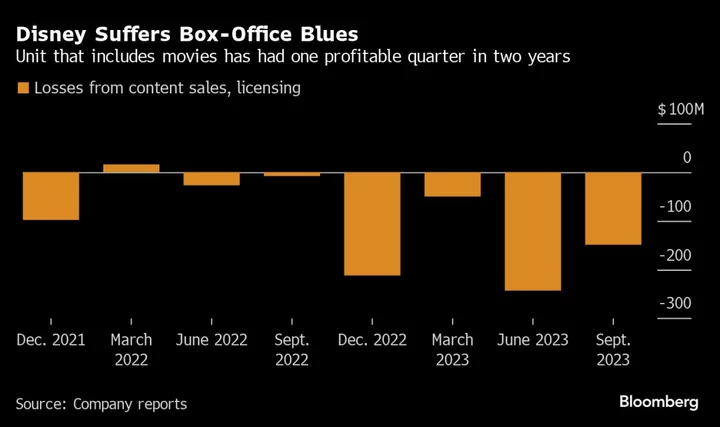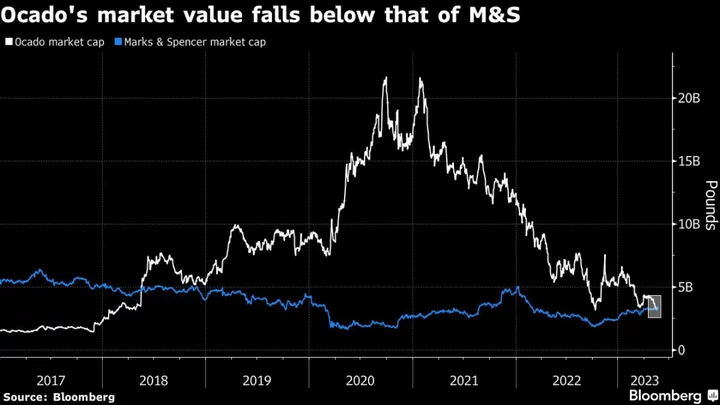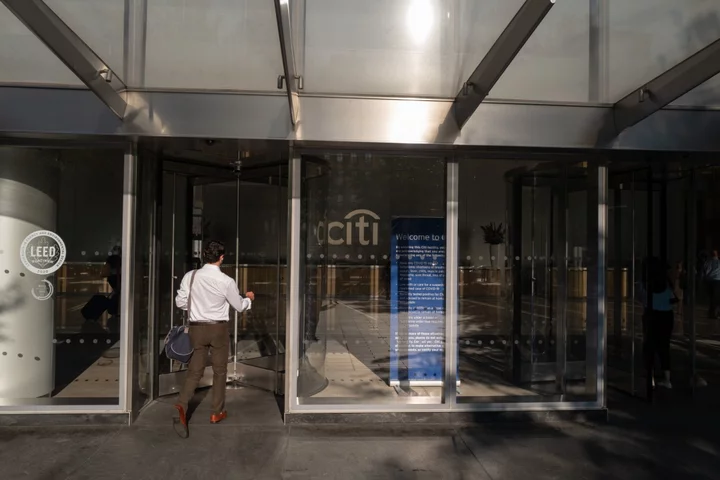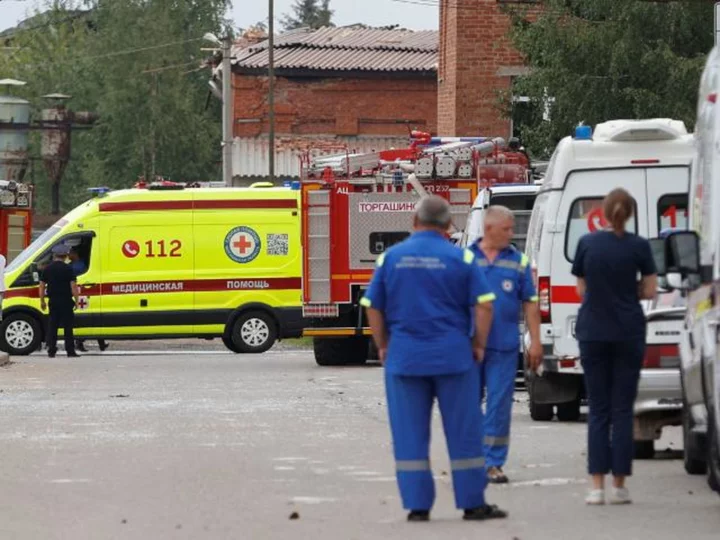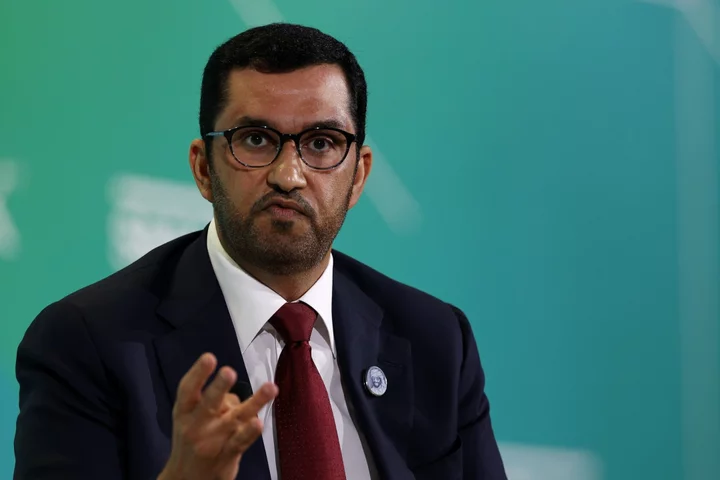The water cops knew their way around the maze of strawberry fields and dirt roads surrounding the Doñana National Park in southern Spain. It still took more than two hours to find the exact spot where a well was siphoning water off one of Europe’s most biodiverse wetlands to cultivate lucrative crops. A handful of lush fig trees — a rare green patch in the increasingly parched region — and a white electricity box gave away the location.
Tracking down unsanctioned wells over the vast area, where legal and illegal farms are haphazardly arranged, is “like finding a needle in a haystack,” says a technician with the local water authority. He asked not to be named because he’s not authorized to talk to the media and fears retribution from farmers. “We’re detecting more wells now thanks to satellite images, but farmers keep digging them because berry farming is so profitable.”
The agents sealed off the borehole with blue tape, but hundreds of additional outlaw wells continue to drain Doñana every day. The water use threatens the survival of migratory birds, the endangered Iberian lynx and hundreds of other species while exacerbating an unprecedented water crisis. The fight over who gets Spain’s water has even become a matter of national political dispute.
The future of one of Spain’s UNESCO heritage sites has been a hot-button topic in the runup to Sunday’s general election. Even as record temperatures wreak havoc across Spain, polls show Spaniards are set to vote against green policies like the one allowing the water police to shut illegal wells. The conservative People’s Party has gained support among farmers by pledging to make it legal to irrigate more land, arguing that their incomes should be protected over Doñana. They’re likely to secure victory with the help of the far-right, climate-denying group Vox, which could end up playing a key role in the next government.
Politicians on both sides have seized on Doñana as a symbol of a broader fight over climate policies, even as issues such as the cost of living, gender equality and identity politics have also loomed large. It’s a trend that’s set to strengthen as global temperatures climb, driven by growing emissions of planet-warming carbon dioxide. In Spain, a second year of extreme heat and drought has put the changing climate front of mind for millions of citizens. Democracies all over the world, from Australia to the US, have seen climate rising on political agendas as more frequent extreme weather events make the crisis difficult to ignore.
It remains to be seen how much the People’s Party — if it wins — will alter five years of progressive climate policies developed under Prime Minister Pedro Sánchez’s Socialist Party. Sánchez summed up the choice in a message on Twitter last month, asking people if they wanted “a Spain that takes care of Doñana, or a Spain that wrecks Doñana.” Alberto Núñez Feijóo, the People’s Party leader, meanwhile, has said the government isn’t addressing farmers’ real concerns. “There’s too much arrogance and a lack of solutions,” he said in April.
At least in their campaigns, the candidates have framed the future of Doñana as an existential question for Spain: Do people want to protect Spain’s environmental assets for the next generation? Or does the nation want less red tape and more economic growth in the present?
Doñana’s fate will have reverberations throughout Europe. At stake is a sector that exported 1.4 billion euros ($1.6 billion) worth of strawberries, raspberries and blueberries in 2022. Spain as a whole accounts for almost half of all strawberries imported by European Union countries, according to S&P Global Market Intelligence.
A combination of intensive irrigation and seasonal migrant labor has allowed some Spanish farms near Doñana to supply berries during the off-season, from January to June, often at significantly lower prices than local produce. But reports of human rights abuses and sexual assaults of female workers have already raised red flags.
Now there’s concern about the environmental cost involved as well. A recent petition with a quarter million signatures organized by Campact, a green group in Germany — the biggest buyer of Spanish strawberries — called on large grocery stores to stop buying strawberries from Spain.
Some of the largest grocers are taking steps to ensure the berries they sell are not produced with illicit irrigation. UK supermarket chains J Sainsbury Plc, Tesco Plc and Morrisons, as well as REWE Group, ALDI Süd and Lidl in Germany said at least some of their Spanish suppliers certify that the fruits have been grown using efficient irrigation methods and legal water sources. Sainsbury’s and Tesco said they were also working to plot its suppliers’ farms against maps of legal and illegal regions in Doñana. That data, compiled by the World Wildlife Fund, estimates there are over 2,000 illegally-irrigated hectares near the national park, accounting about a fifth of total agricultural land around Doñana.
“We’ve seen many certifications and claims by supermarkets that they sell legally-produced strawberries,” says Friederike Gravenhorst, the campaign director at Campact who’s also a member of the German Greens party. “But that can’t all be true — someone, somewhere must be buying illegally-watered strawberries.”
Large producers with direct deals with supermarkets often receive unexpected visits from auditors employed by certification agencies who check on things like irrigation infrastructure, workers’ permits and living conditions. But most often these inspections only check documents and don’t verify wells on the ground. It gets more complicated with the small farmers, who make up most of those operating around Doñana, and often sell their products through local cooperatives. That’s where fruit from different fields is mixed up, packed on site and shipped abroad in less than 24 hours, making it almost impossible to track their origins.
Multiple cooperatives and individual farmers in favor of allowing more land to be irrigated contacted by Bloomberg Green declined to comment.
Felipe Fuentelsaz has been worried about Doñana for far longer than this election cycle. The WWF official spent seven years negotiating with local politicians and farmers to reach an agreement in 2014 that would protect the national park from water thieves.
“My heart sank,” he says, when local People’s Party politicians announced in December 2021, ahead of regional elections the following year, that they’d put forward a bill to grant licenses to up to 1,900 hectares of illegally-irrigated land around Doñana. The measure, backed by Vox, set off alarms as high as the European Commission, which warned it would significantly worsen the state of the park’s aquifers and severely threaten the region’s economic prospects. UNESCO said Doñana would risk its status as a World Heritage Site.
Losing the label would be a blow to a brisk tourism trade that relies on stunning views and rich biodiversity. On a July evening, the sun setting over the park drew gasps of joy from tourists in the nearby El Rocío village as the sky went from orange to purple. Flamingos and wild ducks grazed in the shallow lagoons, disturbed only by the neighing of horses roaming freely on the grassy plain.
“That’s how the whole marshland used to be, you could see 200 bird species in one single lagoon,” Fuentelsaz says. “But what you have in El Rocío today is just 0.1% of Doñana and the rest is dry, or drying up fast.”
Unseen by the visitors, a canal about 25 kilometers (15.5 miles) away channeled water away from Doñana to fields along its border. The dried-out grass inside that part of the park was a far cry from the idyllic scene from El Rocío. Three storks flew in circles above a patch of cracked mud where maps suggest there should be a water stream. While some lagoons regularly disappear during the hot summer months, many now remain dry all year round after 11 straight years of lower-than-average rains.
It’s a fate that Doñana had managed to avoid for decades despite calls for it to be destroyed because of infections from the mosquitoes it attracts. Efforts to preserve the wetland started in earnest in the mid-1950s, after dictator Francisco Franco sought to turn it into a eucalyptus plantation. Large patches were turned into agricultural land, but WWF bought over 6,700 hectares in 1963 and turned it into Spain's first biological reserve. Sánchez’s government has bought more land back from farmers and plans to channel some streams of water back into Doñana.
The local water authority has shut 229 illegal wells in the past five years in a game of whack-a-mole. Tagging a well is just the first step in a long administrative process that can end in a hefty fine — and many more wells can be dug in the meantime. WWF estimates there are about 800 illegal wells around Doñana. Some are large structures reinforced with concrete, others are just a pipe sticking out a feet from the ground making them almost impossible to find.
Last year, the government took the controversial step of limiting the amount of water available for irrigation, angering many local farmers who had to leave their strawberry, cotton and rice fields unplanted this season. But even these measures are barely enough to keep Doñana alive, says Joaquín Páez, the water authority’s president, with three out of five of the five underground aquifers that feed Doñana still overexploited.
Doñana only has a future “if we do everything that we have planned,” he says. “And if it rains.”
The increased scrutiny of Spanish berries weighs on the farmers of Almonte, a village on the Doñana border.
Any boycott will be another blow after years of struggling to cope with the drier weather. Efforts to improve irrigation efficiency and switch to less land-intensive farming methods will all be for naught if small farms in the region are all considered risky suppliers because there’s no clear way to distinguish which fruits come from legally-irrigated farms.
Almonte’s total berry production has already dropped as much as 15% this year compared with last season, according to Manuel Delgado, a spokesman for the farmers. Industry group Interfresa says drought and other factors have caused as much as a 30% decline in strawberry production this season across the whole Huelva province, which includes Doñana and is the source of almost all Spanish berries.
“This German campaign is impacting every fruit farmer in Huelva,” Delgado says. “But none of that would have happened if we didn’t have that People’s Party proposal to legalize irrigated land on the table and if we weren’t in the middle of an election campaign.”
Almonte’s farmers say if the bill becomes law, it will drive those who have been following the rules out of business and further deplete Doñana’s water resources. They speak through Delgado because none of them wants to be identified in the media after some received threats on social media and text messages from other growers who want their wells legalized.
The debate has tapped into frustrations that have simmered in Doñana for years. The two water agents who sealed off the well in the strawberry field in July were escorted by officers from Spain’s Civil Guard, a standard practice after a 2018 incident — recorded by WWF — where an agent doing a routine inspection in the same area was assaulted by a group of people and hospitalized.
That afternoon, the strawberry field’s owner arrived as the water cops were disconnecting the well’s electricity source. A big man wearing a half-unbuttoned white shirt, he descended from a gray SUV truck with a show of bravado, but grew quiet as the water police explained his violation and handed him a pile of forms, under the watchful eye of law enforcement agents.
Almonte’s farmers worry a victory of the People’s Party on Sunday could embolden illegal growers and lead to even more water extraction around Doñana. But there are signs that the People’s Party could soften its position on allowing more irrigation amid growing divisions among farmers and warnings from European and international institutions. Last month, Juan Manuel Moreno, president of the People’s Party branch that brought the bill, halted its progress through parliament until after the election.
People’s Party vows to protect natural and biodiverse wetlands like Doñana by applying technical solutions that are viable and efficient, according to the party’s election manifesto. Spokespeople for the People’s Party and Vox didn’t reply to a request for comment.
No matter the outcome, the prospect of legislation has already had a profound effect on everyone involved. “There’s the possibility that this is a political game to mobilize some groups and that, in the end, the legalization doesn’t go ahead,” says Delgado, the farmers’ spokesman. “Regardless, what we’re suffering down here is very real.”
Visual media produced in partnership with Outrider FoundationPhoto Editing by Jody Megson
--With assistance from Alonso Soto, Agnieszka de Sousa, Clara Hernanz Lizarraga, Katie Linsell, Petra Sorge and Paula Doenecke.

